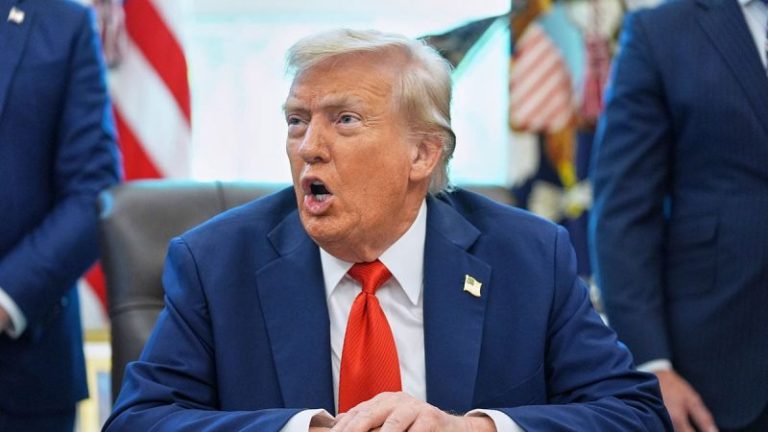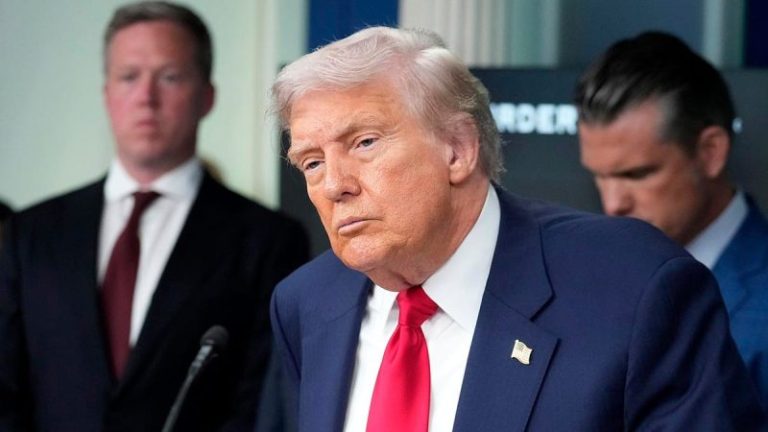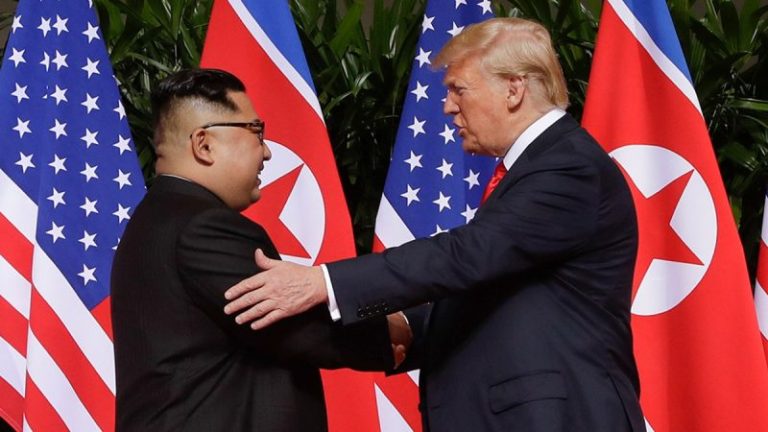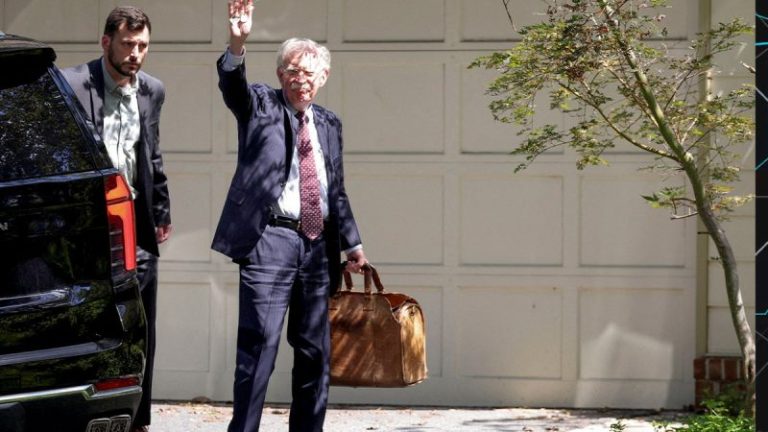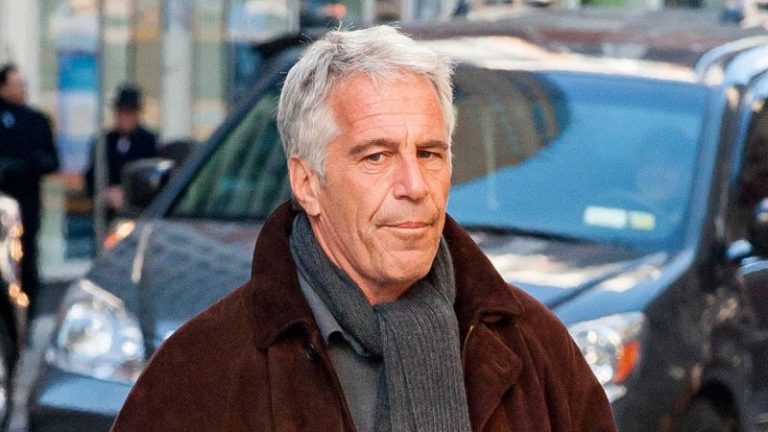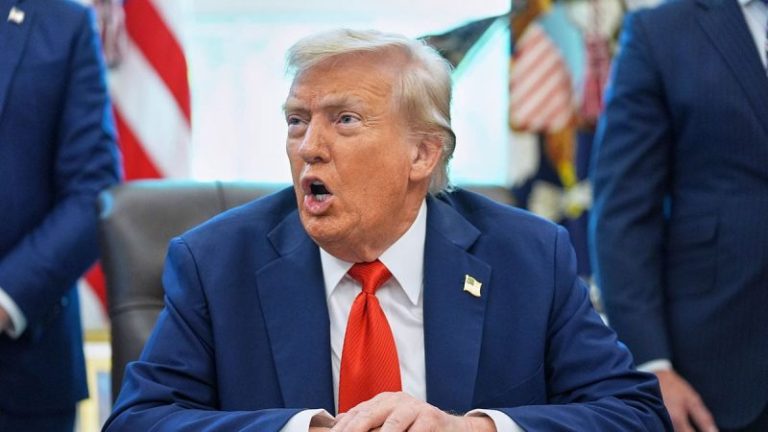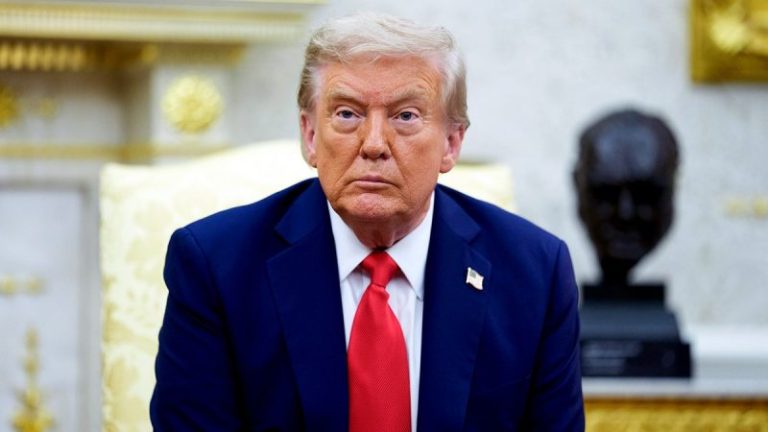I asked Donald Trump the question. Everyone asked Donald Trump the question.
Would he engage in retribution in a second term?
And we all got the same answer: He’d be too busy for that. His only retribution would be success.
Well, if Trump is not engaged in turning government against his political enemies, he’s doing a pretty good imitation of it.
Now, hardball politics is as old as the republic. The founders engaged in it. Abe Lincoln engaged in it. And you think LBJ never got his way by threatening to pull a grant or two for a congressman’s pet projects?
Look, one thing I’ve learned covering Trump for decades is that he loves to fight. In New York, back in the day, he would do battle with the likes of Ed Koch and Leona Helmsley, the ‘Queen of Mean.’
When his divorce from Ivana became a tabloid sensation, Trump got on the phone with me to discuss why his proposed settlement was really generous.
We see that fighting instinct today when the president goes after not just Democrats but fellow Republicans who defy him, or won’t back his proposals – a number of whom have announced their retirements rather than lose a primary to a Trump-backed challenger.
We see that Trump-against-the-world approach with his crackdown on D.C. crime which, despite the home-rule issues, is being welcomed by some liberals (publicly and privately) because folks are scared in a city that can’t even stop teenage carjackings.
The next target is Chicago, which also has a Black mayor, with the Washington Post reporting that there has been weeks of secret planning to send thousands of National Guard troops there. Illinois Gov. J.B. Pritzker has denounced this as an effort to spread fear, and sometimes it seems like the president is at war with urban America.
The underlying motivation is crucial: Trump believes that the Democrats waged ‘lawfare’ against him for four years. There is no evidence that President Biden ordered such efforts, but Trump is convinced that the multiple investigations against him–as in the Stormy Daniels case–were part of a grand scheme to knock him out of the race.
And he has a point. Look at the outrageously illegal fine that Judge Arthur Engoron hit him with in the civil fraud case brought by New York AG Letitia James: $354 million, since grown to $515 million.
This was so blatantly unfair that an appellate court just threw it out as a violation of the Eighth Amendment, barring cruel and unusual punishment. James is appealing, and the court didn’t toss the whole case–the ‘fake’ case, says Trump–but a half-billion-fine over real estate valuations seems pathetically unfair.
But when Trump cried foul, the media reaction was there he goes again, attacking every judge who disagrees with him. But Trump was right about Engoron.
The Trump DOJ, by the way, is now investigating Tish James for allegations of mortgage fraud.
So what the press sees as Trump going after his opponents is, in his eyes, just basic payback, an attempt at getting even.
Having said that…
‘I just watched Sloppy Chris Christie be interviewed on a ratings challenged ‘News’ Show…on ABC Fake News,’ ‘This Week’ hosted by George Stephanopoulos.
‘Can anyone believe anything that Sloppy Chris says? Do you remember the way he lied about the dangerous and deadly closure of the George Washington Bridge in order to stay out of prison, at the same time sacrificing people who worked for him, including a young mother, who spent years trying to fight off the vicious charges against her. Chris refused to take responsibility for these criminal acts. For the sake of JUSTICE, perhaps we should start looking at that very serious situation again?’
Christie, a onetime ally, was Trump’s harshest Republican critic during the campaign. As for the 2013 scandal known as Bridgegate, it was thoroughly investigated and two top Christie aides were convicted, but the Supreme Court, while blasting the conduct, overturned those convictions.
It’s worth pointing out that the decision to close some lanes on the George Washington Bridge, which created traffic chaos, was the governor’s attempt to strike back at a Democratic mayor who refused to endorse him.
‘Time for some traffic problems in Fort Lee,’ wrote one of the convicted aides in a remarkably succinct message.
‘I always thought he got away with murder,’ Trump told reporters yesterday.
Having watched the Sunday shows, the president unloaded on two networks:
‘Despite a very high popularity and, according to many, among the greatest 8 months in Presidential History, ABC & NBC FAKE NEWS, two of the worst and most biased networks in history, give me 97% BAD STORIES. IF THAT IS THE CASE, THEY ARE SIMPLY AN ARM OF THE DEMOCRAT PARTY AND SHOULD, ACCORDING TO MANY, HAVE THEIR LICENSES REVOKED BY THE FCC. I would be totally in favor of that because they are so biased and untruthful, an actual threat to our Democracy!!!’
He added that ABC and NBC should be paying ‘Millions of Dollars a year in LICENSE FEES…Crooked ‘journalism’ should not be rewarded, it should be terminated!!!’
Now networks shouldn’t lose their licenses just because the president doesn’t like their coverage. Maybe they should be paying more for use of the airwaves, but that should apply to all networks; so far they’ve played by the rules.
Trump and John Bolton have been at each other’s throats since the president fired the national security adviser. There was a criminal investigation over Bolton’s 2020 book that Trump tried to stop, but it was cleared for publication.
I take Trump at his word that he didn’t know in advance about the FBI raid on Bolton’s Bethesda home. But twice in the days leading up to the raid, Trump was slamming him online for criticizing his efforts to end the Russia-Ukraine war..
‘Very unfair media is at work on my meeting with Putin. Constantly quoting fired losers and really dumb people like John Bolton, who just said that, even though the meeting is on American soil, ‘Putin has already won.’ What’s that all about?’
After the raid, Trump called Bolton a ‘low-life’ and a ‘sleazebag’ who suffers from ‘major Trump Derangement Syndrome.’
But two things can be true at once. Trump prosecutors had to show convincing evidence to a special court to get the search warrant approved. So it’s possible that Bolton did hang on to some classified documents.
After the raid, Trump posted that Bolton was among the ‘stupid people’ who were making it ‘much harder’ for him to end the war by ripping his approach to Putin.
I’ve known John Bolton for years–he used to be a Fox contributor–and I’m surprised he’s made no comment. There was just a little wave at the press pack when he returned home.
Next up: Wes Moore, Maryland’s first Black governor.
They’ve been jabbing each other back and forth, which is fine. But then the president posted this:
‘Governor Wes Moore of Maryland has asked, in a rather nasty and provocative tone, that I ‘walk the streets of Maryland’ with him. I assume he is talking about out of control, crime ridden, Baltimore? As President, I would much prefer that he clean up this Crime disaster before I go there for a ‘walk.’ Wes Moore’s record on Crime is a very bad one.’.
There’s more:
Trump ‘offered’ to deploy troops to Baltimore – which has a serious crime problem – after which he would accept Moore’s invitation to meet him on the streets.
Then came the threat: ‘I gave Wes Moore a lot of money to fix his demolished bridge. I will now have to rethink that decision???’
Moore has been rebuilding the Francis Scott Key Bridge since a reckless and out-of-control tanker destroyed it early last year. And for the record, Congress approved the funds as part of a package during the final stretch of the Biden administration.
But put that aside. Who would be hurt if Trump carried out this threat?
Millions of people in Maryland who rely on the bridge, or whose jobs are tied to commerce in that region.
So Trump is openly suggesting to use the official power of government to withhold funds that would hurt ordinary citizens. That is more troubling than the punching and counterpunching with Bolton and Christie.
For what it’s worth, I don’t think Trump would actually do it. It’s a brushback pitch.
While Trump may view himself as evening the score, one day Democrats will occupy the White House again. They would feel fully justified in going after their opponents as payback for the way they were targeted for investigation. And the endless cycle continues.
This post appeared first on FOX NEWS

